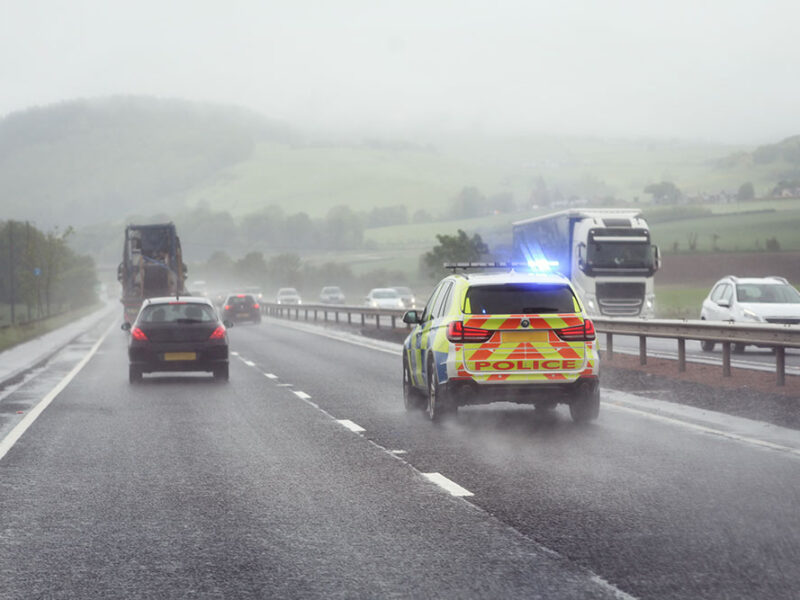It is one of the key safety aspects of the transport regulatory regime that a responsible person (usually the driver) undertakes a proper check of the vehicle every day that it is being used.
Making sure that your drivers undertake this important check before they take over driving the vehicle (even if the vehicle is being handed over to them by another driver) could be crucial if ever there was an accident and the authorities come calling. It is not just having the evidence of the check (with "Nil Defects" being recorded if no problems are found), it is ensuring that if defects are found on the vehicle that there is an established and documented procedure for the driver to follow in order to report the defect to the relevant person in the organisation and further action to determine whether the reported defect means that the vehicle should not be used until the defect has been fixed.
The government website gives at least 24 items that must be checked on a vehicle before it can be driven. Click here to view a video produced by the DVSA which illustrates how to undertake a suitable check. The DVSA have also produced a walk around check diagram, which helps to highlight the key areas for drivers to look at. Click here to view.
The Police and DVSA can stop your vehicles and undertake checks by the roadside at any time. If they find any issues, your driver can be prohibited from driving the vehicle and the vehicle may even by impounded, or an on-the-spot fine issued, depending upon what type of problem is found. Very serious penalties can be imposed for using an HGV (or PSV) in a dangerous condition both for the driver and the operator including the prospect of criminal prosecution and/or call up to Public Inquiry.
If the worst does happen and one of your vehicles is pulled over and found to be defective, it is important that the driver knows how to deal with the authorities at the road side and that specialist legal advice is sort quickly to ensure that any wider damage or disruption to the business is contained.
Call us on 01279 818280 to see how our team can help and assist your business or click here to send an email.

More News and Insight

Walkaround Checks – Where Road Safety Starts
Every day, often before the sun is above the horizon, hundreds of thousands of commercial vehicles are started up by their drivers and then they head out on to the UK’s road network to transport goods or passengers from one point to another, often with demanding time constraints thrown into the mix…

Traffic Commissioner’s Annual Report 2024/25: “Don’t Look Back in Anger”
Time has flown by and once again we find that the schools are back after the long summer break and the Office of the Traffic Commissioner has issued its annual report to the Secretary of State, providing a review of the year…

An Apple a Day to Keep the DVLA Away – A review of the DVLA’s Rules on Health Checks for Professional Drivers
There has been some discussion in the industry trade press recently that has highlighted proposed changes to how the disease of diabetes is monitored in professional drivers by the DVLA. One article in RouteOne Magazine stated that…

Light Goods – Heavyweight Industry: The DVSA’s New LGV Strategy
While relatively small in overall physical size light goods vehicles (LGVs) are now a large part of the UK road transport industry. There are currently estimated to be over 5.1 million light goods vehicles on UK roads today…

Employment Law Update – A tale like Scylla & Charybdis
Operators currently face their own real time nightmare in the form of a modern day version of the Greek mythological tale of Scylla and Charybdis (where sailors faced a narrow strait through which they had to pass which had a monster on one side and a whirlpool on the other!)…

Labour Government – Employment Rights Bill – What Will It Mean for Transport Businesses?
In October 2024 the Deputy Prime Minister, Angela Rayner set out her intention to reform the employment rights held by employees in the UK. In a press release issued at the time she is quoted a saying…

Revisiting the DVSA’s Guide to Maintaining Roadworthiness
In April 2025 the Driver & Vehicle Standards Agency (DVSA) issued the latest edition of its Guide to Maintaining Roadworthiness.

The Wheels on the Bus go Round & Round….but how do they Stop?
At the tail end of 2024 a Public Inquiry was held in front of Traffic Commissioner Kevin Rooney where the subject of brake maintenance practices was called into question…

Maintenance Provision Rating Scheme for Commercial Vehicle Workshops is Launched
One of the key tenants of running a commercial vehicle operation, whether ‘HGV’ or ‘PSV’ is that the maintenance of the vehicles is paramount. For some operators this will mean having their own maintenance facilities and teams to look after their fleet of vehicles in house, but the majority of operators in the UK are reliant on 3rd Party maintenance providers…

Changes to Brake Safety Inspections for Commercial Vehicles – April 2025
In April 2025 the brake testing regime guidance will change. Roller Brake Tests, that have been mandatory for years, will be joined by an Electronic Break Performance Monitoring System or EBPMS…

Case Study – Public Inquiry for Gillbard Plant, Autumn 2024
Gillbard Plant was called to Public Inquiry in Autumn 2024. The hearing made headlines in the transport press due to the element of “DVSA Poacher turned Game-keeper” of Gillbard Plant’s Transport Manager, Mr. Anthony Brayley-Willmetts, a former DVSA (VOSA) examiner turned transport consultant…

DVSA Load Security Guidance – Updated December 2024
When carrying loads on lorries every HGV Operator knows how important it is to ensure that goods are secured safely so that they arrive at their destination in good condition and that they do not cause any damage or danger on the UK’s roads during the process of transporting them…
